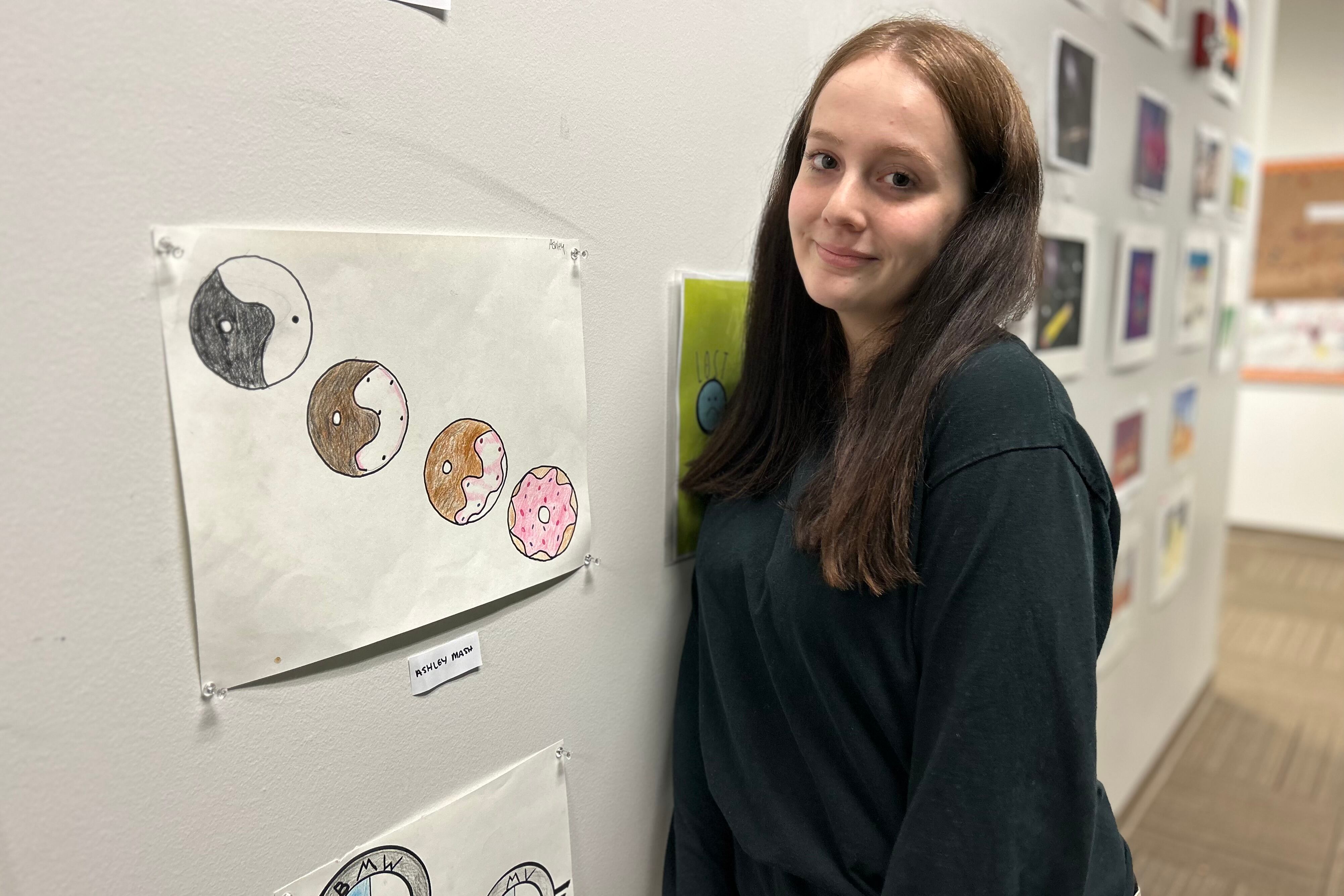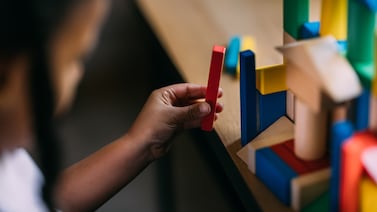Looking back, Ashley Mash is somewhat thankful that a few years ago, her father called the police after her sisters found the two blunts she had put in a drawer in the basement.
Months before, she had gotten high for the first time as a freshman in the Carmel High School bathroom, an experience that turned into a coping mechanism to deal with feelings of insecurity and anxiety. When her parents sent her to Hope Academy — a charter high school in Indianapolis for students struggling with substance use — she did not want to go.
Now, Ashley is the valedictorian in a class of seven graduates who will celebrate their diplomas in a ceremony on Saturday. She is heading to Ball State University to study wildlife conservation with nine months of sobriety under her belt.
“Obviously I still have cravings and stuff,” she said. “But I realized how many problems I don’t have when I don’t smoke.”
Valedictorians at Hope Academy don’t earn the title based on grade point average alone, but also on their service to the school and their commitment to staying sober. Ashley has been active in the school, even giving a speech at the school’s regular fundraising event.
“I don’t know how to ever repay you,” she said about the school in the speech she gave at the event in November. “But I can start today by continuing to be sober and living the life that you saved.”
The graduation for Hope Academy is among the first in the wave of high school graduations that begin this month for the Class of 2023.
Hope Academy is celebrating its 17th graduating class this year since opening in 2006 as the state’s only recovery high school. It is one of 42 across the country, according to the Association of Recovery Schools.
The challenges for Hope Academy and other recovery schools have changed since then. With a shortage of proper treatment programs, schools like Hope are now increasingly on the front lines of students’ recovery efforts, said Rachelle Gardener, the school’s co-founder and executive director.
“They find us first and we’re doing a lot of referrals to treatment, if we can find treatment,” she said. “We’ve had to kind of adjust the way we look at that student when they come to us, not having a lot of knowledge of addiction, not having a lot of knowledge of recovery.”
In an attempt to reach more students, Hope moved to a more central location on the southside of Indianapolis in 2020 and joined the Indianapolis Public Schools as an Innovation Network school that same year.
The legalization and prevalence of marijuana in recent years has presented a new challenge, Gardner said. Now, all of the school’s students have a marijuana substance use issue, whereas nearly two decades ago students primarily struggled with other substances such as alcohol.
At Hope, students take a traditional academic curriculum to align to the state’s Core 40 standards required to graduate. But they also have recovery coaches who help guide them through their addiction, and a recovery and wellness class that breaks up the standard academic day.
After two years at the school, Mash realized she didn’t like the feeling of smoking weed and the anxiety it would bring. When senior year hit, she knew she had to graduate because she didn’t want to be in school forever.
She was also motivated to change when she realized how much she was hurting the people around her, she said.
“My parents were really worried and for a while, I knew that they were worried and I didn’t care,” she said. “Senior year hit and I was like, ‘I actually have to get my stuff done and be sober and make something of myself.’”
And when her father passed away in January, she still stayed sober.
Ashley advises other students struggling with addiction: “Don’t be selfish.”
“You have to think of your future,” she added. “No matter how badly I didn’t want to think about it, I knew that if I was 20 and still in school I wouldn’t be happy. I think that everyone that’s still struggling with it needs to just try their best to do better, because it’s not perfect, but as long as you’re trying to help yourself then that’s all you can do.”
Amelia Pak-Harvey covers Indianapolis and Marion County schools for Chalkbeat Indiana. Contact Amelia at apak-harvey@chalkbeat.org.




